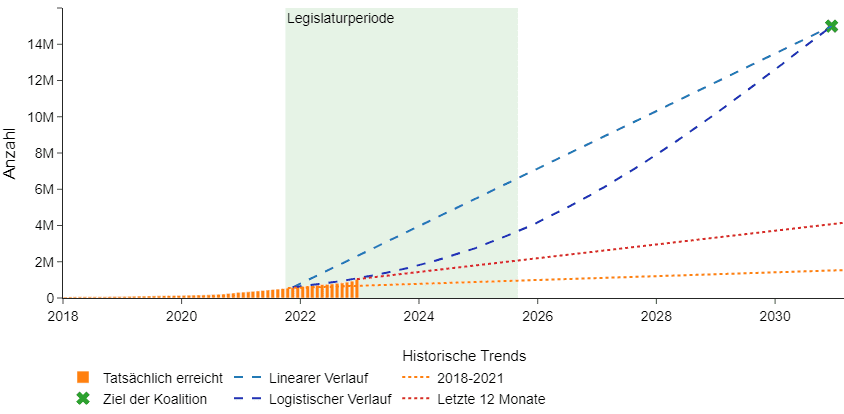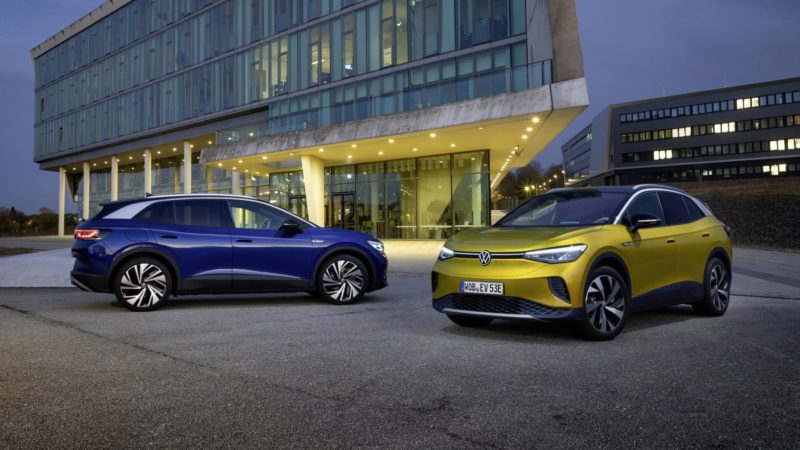Germany has passed 1 million purely electric cars on its roads ,according to the German Institute for Economic Research. For contexr, Australia has not quite 70,000 full EVs on its roads.
The new data from the Federal Motor Transport Authority shows that battery electric cars accounted for 33.2% of all new cars registered in December 2022, while plug-in hybrids accounted for another 22.2%, meaning that more than half of all new cars registered in Germany in December 2022 had a plug.
Surpassing the 1 million mark is a huge achievement for Germany, but it still raises questions around how the country will reach its goal of 15 million EVs by 2030.

According to the German Institute for Economic Research (DIW), the trend in 2022 was 32,000 new EVs added per month. If Germany is to hit its goal of 15 million EVs by 2030, however, around 145,000 EV registrations per month would be needed.
Conversely, relying on a more logistical growth path which predicts stronger growth in later years (as derived from a study by Fraunhofer ISI), the DIW believes that “the current stock development is only slightly below the target path, also thanks to the strong December.”
Worth noting, however, is the fact that EV purchase subsidies declined with the start of 2023. A new EV purchased in 2022 received a subsidy of €6,000, a figure which drops to €4,500 in 2023.
Joshua S. Hill is a Melbourne-based journalist who has been writing about climate change, clean technology, and electric vehicles for over 15 years. He has been reporting on electric vehicles and clean technologies for Renew Economy and The Driven since 2012. His preferred mode of transport is his feet.

